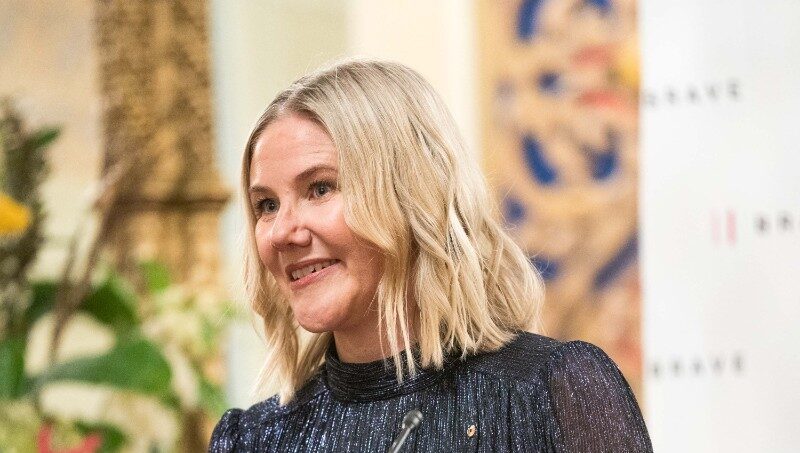
As origin stories go, Bernadette Black’s is highly compelling. Her drive to establish Brave Foundation – an organisation supporting young parents into education or work – was grounded in her own experience as a pregnant 16-year-old trying to navigate Centrelink. She found the experience profoundly unwelcoming and unhelpful, and it created a deep determination to one day change the system. Thirty years on, she’s doing that with SEED.
Bernadette is now heading up a new entity under the auspices of Brave, and building on its work, called the Social Economic Empowerment Department (SEED). In SEED, Bernadette has devised a four-stage, 10-year roadmap to completely overhaul the social service support system for young mothers and fathers, creating a place to flourish rather than flounder.
Bernadette handed over the reins of Brave to a new CEO and in 2022, SEED was launched with the support of Reverend Tim Costello AO. SEED consists of an Advisory Council called the Social Economic Empowerment Advisory Council (SEEAC), with 18 subject matter experts from around Australia. It has significant government support in the shape of the SEED Policy Round Table, which meets regularly and is made up of senior government officials across federal and state departments, through the Department of the Prime Minister and Cabinet.
SEED is born from lived experience, and the emerging SEED Lived Experience Advisory Group is key. This lived experience group will continue to inform SEED’s work with firsthand insights on how we can overcome the systemic obstacles young parents face.
SEED’s mission is to simplify the Centrelink experience for young families. SEED proposes a “one door” access point for all families across 1,000 days, from conception to two years, through which all services are linked. The current system, says Bernadette, is not fit for purpose and only creates hurdles to accessing services for young people most at risk, which creates further intergenerational dependence.
“We will make sure every parent in Australia is met with one door connecting them to support, payments, wellbeing and safety, but most importantly their dreams and aspirations. We will frame language in policy to build and unify, not confuse or provide obstacles,” says Bernadette.
Her first experience of Centrelink left her feeling miserable: “My auntie took me to get some forms and I knew immediately that I didn’t want to come back.
“My mum took me again when my son was six weeks old. We waited for hours, ready with all my forms. I tried smiling at people. It didn’t work. Why didn’t they smile back? As I waited for more than three hours juggling my baby, no one looked happy, and there was the same sense of agitation and desperation in the air that I recalled from the last time.
“What is the opposite of flourish? It’s to wither and die. My first two experiences with Centrelink exposed a new reality for parents, and this environment was accelerating the withering process.”
But Bernadette was determined and eventually finished Year 12, then further education to become a nurse. She wrote a book called Brave Little Bear in her 20s to share her experiences of teen parenthood. At the same time, she began a “directory of services” on her desk, which was a list of programs for young families. In the following 15 years, the directory grew to almost 1,000 organisations helping young parents, which she later licensed to the federal government.
Enquiries about Brave Little Bear continued from all over Australia, and although Bernadette was busy working as a nurse and raising her son, she knew more work with young parents was calling. She established Brave Foundation in 2009 and in 2014 with the support of a bequest of $500,000 from the late Anne Tomlinson-Walsh, launched Brave nationally and was appointed as inaugural CEO.
At Brave, Bernadette and her team developed the Supporting Expecting and Parenting Teens (SEPT) initiative, which is a personalised program matching a pregnant or parenting young person with a mentor working from a local hub site, community organisation or via outreach. Virtual mentors are also available for rural and remote participants and those experiencing isolation due to mental health or other complexities.
Mentors walk alongside their participants to support them with educational and workforce participation, goalsetting, career path guidance, health and wellbeing, financial or housing assistance programs, everyday infant care, transport or other requirements.
Between 2009 and 2022, Brave grew to more than 22 staff. Throughout this time, Bernadette was named Tasmanian Australian of the Year 2019, Bernardos Australian Mother of the Year and was made a Member of the Order of Australia in 2021.
Funding cliffs
Despite the accolades and evidence to show that Brave’s program was successful, Brave faced three different funding cliffs. After the third, Bernadette launched a ‘No Stone Unturned’ financial strategy and the Paul Ramsay Foundation stepped in with a “lifeline” of six months’ funding in 2021.
“In what felt like turning the Titanic around, we then secured $13.5 million in funding in just nine months,” says Bernadette. “It was made up of federal, state, philanthropic and private funding.”
In Bernadette’s final three years as CEO of Brave, the organisation supported more 1,000 young parents – mostly mothers – and more than 1,600 children.
Included in that tranche of funding was the means to establish SEED, reporting to Brave’s board.
“There is a lot of work to do in the next decade. I am now ‘Nana Bebe’ to toddler Juliett and when I see my 30-year-old son and his family, I return to my ambitious dream from so many years ago – that all families know what it’s like to flourish, to be nurtured and to nurture,” says Bernadette.
“Our country needs healthy families. We are depending on it. We need to help families quickly, early and at the right time – through one door.”